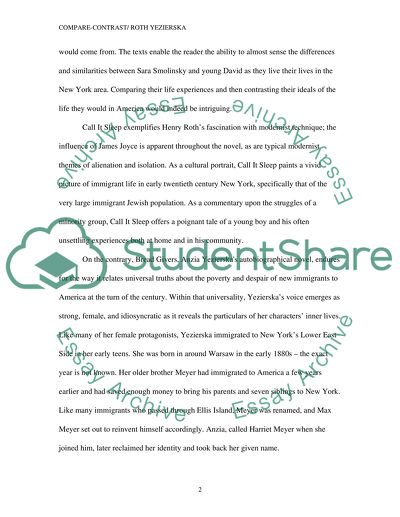Cite this document
(“Comparing the psyche of immigrants as depicted in the novels Call it Essay”, n.d.)
Comparing the psyche of immigrants as depicted in the novels Call it Essay. Retrieved from https://studentshare.org/miscellaneous/1529352-comparing-the-psyche-of-immigrants-as-depicted-in-the-novels-call-it-sleep-by-henry-roth-1934-and-bread-givers-by-anzia-yizierska-1925
Comparing the psyche of immigrants as depicted in the novels Call it Essay. Retrieved from https://studentshare.org/miscellaneous/1529352-comparing-the-psyche-of-immigrants-as-depicted-in-the-novels-call-it-sleep-by-henry-roth-1934-and-bread-givers-by-anzia-yizierska-1925
(Comparing the Psyche of Immigrants As Depicted in the Novels Call It Essay)
Comparing the Psyche of Immigrants As Depicted in the Novels Call It Essay. https://studentshare.org/miscellaneous/1529352-comparing-the-psyche-of-immigrants-as-depicted-in-the-novels-call-it-sleep-by-henry-roth-1934-and-bread-givers-by-anzia-yizierska-1925.
Comparing the Psyche of Immigrants As Depicted in the Novels Call It Essay. https://studentshare.org/miscellaneous/1529352-comparing-the-psyche-of-immigrants-as-depicted-in-the-novels-call-it-sleep-by-henry-roth-1934-and-bread-givers-by-anzia-yizierska-1925.
“Comparing the Psyche of Immigrants As Depicted in the Novels Call It Essay”, n.d. https://studentshare.org/miscellaneous/1529352-comparing-the-psyche-of-immigrants-as-depicted-in-the-novels-call-it-sleep-by-henry-roth-1934-and-bread-givers-by-anzia-yizierska-1925.


